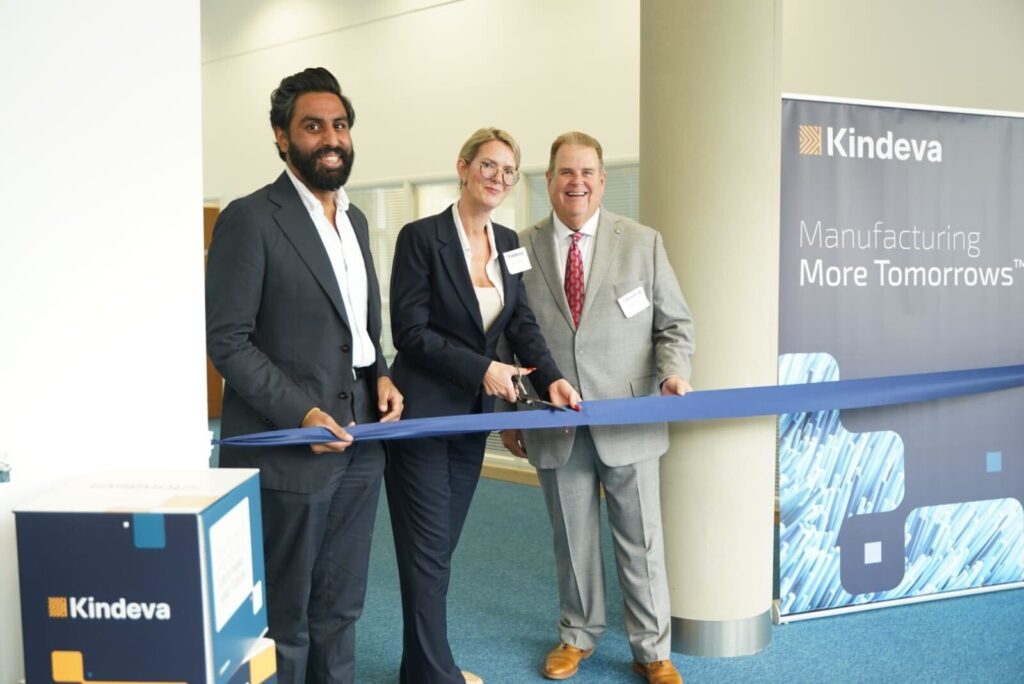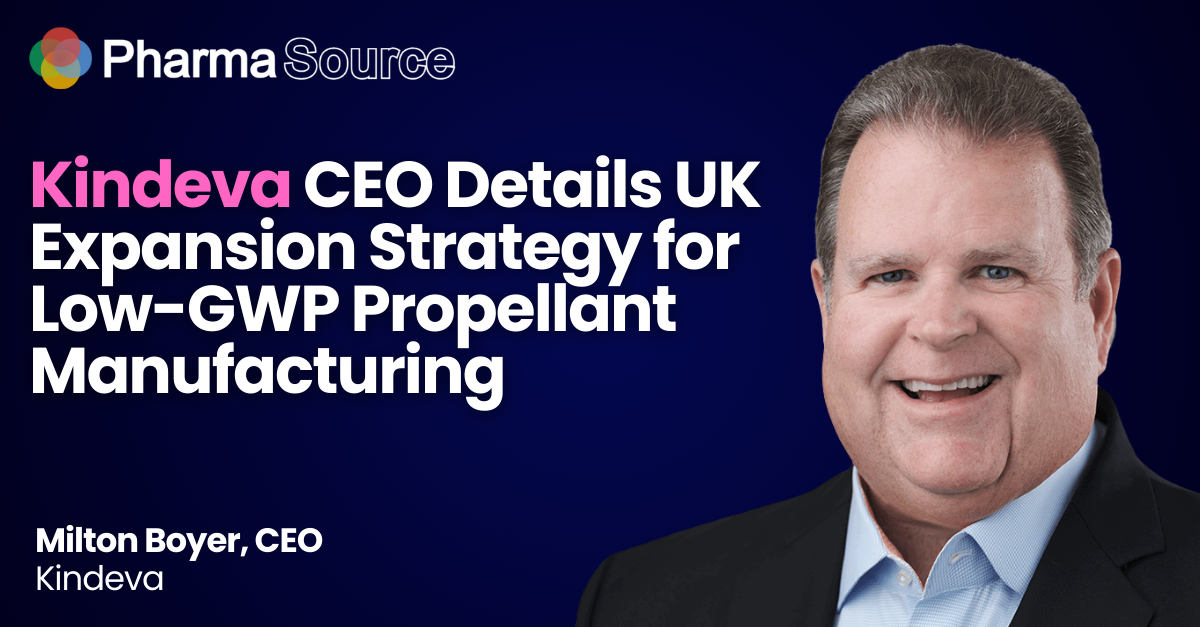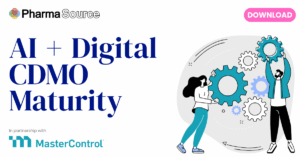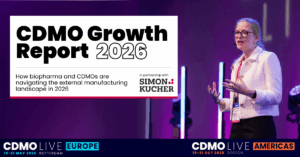“Outsourcing is about giving the things you don’t excel at to someone who does them exceptionally well. That’s what speeds development and delivery,” says Kindeva’s CEO, Milton Boyer.
Milton brings nearly 30 years of pharmaceutical manufacturing experience as a contract manufacturer. He spent the first half of his career in drug substances and APIs, and the latter half in sterile drug product manufacturing before leading Kindeva’s transformation into a multi-platform drug delivery CDMO.
In this exclusive interview from Kindeva’s new MDI Hub and UK headquarters at Charnwood Campus in Loughborough, Milton explains why strategic partnerships, sustainability initiatives, and specialized capabilities are driving the next wave of pharmaceutical outsourcing growth.
Kindeva Opens New UK Facility to Lead Sustainable Propellant Transition
Kindeva’s expanded UK facility represents a significant investment in sustainable inhalation therapy manufacturing as the industry faces a mandatory transition away from current HFA propellants to more environmentally-friendly alternatives with low global warming potential (GWP).

The pharmaceutical industry faces a necessary transition to new propellants, largely because it relies on the same chemicals used in broader industrial applications. “The propellants in metered-dose inhalers are the very same ones used in HVAC and refrigeration systems,” Milton explains. “As those industries shift to new alternatives, pharma must follow, as we represent only a very small fraction of overall demand.”
The sustainability imperative combines environmental responsibility with patient access. “The sustainability has several facets,” Milton notes. “When people hear sustainability and the lower GWP of the new propellants, that’s what they focus on, and that is true. But there’s also sustainability to the patient, which in my mind is a bigger issue.”
Leveraging 3M Legacy Experience from Previous Propellant Transition
Kindeva brings unique expertise to this challenge through its heritage as the former 3M Drug Delivery Systems business. The company invented the metered dose inhaler and successfully managed the industry’s previous major propellant transition in the 1990s.
“Legacy 3M led the original conversion from CFCs to HFA,” Milton explains, referring to the transition from chlorofluorocarbon propellants to hydrofluoroalkane propellants. “So in many ways we have been through this before.”
This history gives the company deep technical expertise and institutional memory – advantages that newer market entrants often lack. Milton pointed out employees who had experienced both industry transitions firsthand: “We had people saying, ‘I’ve been here 30 years. I started my career with the first transition, and I’ll end it with this latest one.’”
But that legacy also creates succession challenges. “We need the next generation of scientists to absorb that knowledge and carry it forward,” Milton notes. To address this, the company is investing in talent development and building partnerships with universities in the Loughborough area.
Creating Competitive Advantage Through Technical Barriers
The transition to low-GWP propellants requires substantial technical expertise and capital investment, creating natural barriers that limit competition. Milton sees this as a strategic opportunity for companies willing to invest.
“The new propellants are different and require different filling technologies, different tank farm technologies. They require significant investments,” he explains. “We believe that’s why not everybody is rushing to this. There are a few key players in the industry. We’re proud to be one of those.”
Companies like GSK and AstraZeneca have announced transitions to sustainable propellants, but the technical requirements mean only a select group of CDMOs can support this transition effectively.
Why Pharmaceutical Outsourcing Will Continue Accelerating
Milton sees outsourcing trends accelerating across industries, driven by the need for specialized expertise and faster development timelines. As Milton observes, companies under pressure to deliver faster are increasingly turning to external partners, rather than managing every stage of development in-house.
“The trend for some time now has been toward more outsourcing,” Milton explains. “Innovator companies are under pressure to move quickly. Instead of investing heavily in early-stage activities, they often look to acquire assets and then find partners to bring them to market.”
Outsourcing allows companies to focus on their strengths while leveraging specialized expertise elsewhere. “If you think about outsourcing, it’s really giving the things you don’t do as well to someone else who does them better,” Milton says. “It accelerates development and delivery—that’s why it’s not going away.”
But success in this model requires more than contracts and timelines. Milton underscores the need for alignment and purpose. “Leadership teams need to simplify the complexity,” he advises. “Why are we outsourcing? Fundamentally, it’s about delivering vital medicines to patients. When people understand that mission and can connect to it, outsourcing becomes more than a transaction; it becomes part of a shared goal.”
For additional details on Kindeva’s new UK manufacturing capabilities and facility specifications, read our full coverage of the Loughborough expansion.










